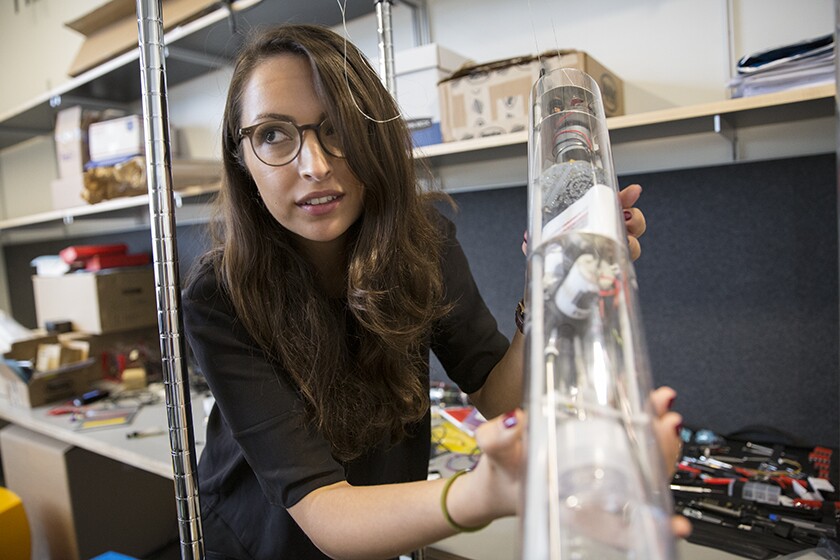Wastewater surveillance has a long history in the battle against infectious diseases. Most recently, it has been put to work in at least eight states in tracking an outbreak of monkeypox. But it carries risks of its own, including the potential for undermining privacy and for being put to use for purposes outside of public health, such as in law enforcement — uses that, if taken too far, could further erode Americans’ trust in government.
Certainly there's no denying wastewater surveillance's value as a public health tool. Back in July, doctors in Rockland County, N.Y., diagnosed a 20-year-old man with the first U.S. case of polio in almost a decade. Public health officials wanted to get ahead of the disease so they could roll out immunizations. In the disease’s past, by the time they saw a case it was too late to protect the patient and, probably, too late to prevent polio’s spread. So state officials went looking for signs of the disease in neighboring communities — in sewage water.
They found that polio wasn’t a problem they could simply flush away. Along with Rockland County, wastewater tests found the disease in at least two other counties as well as in New York City, prompting Gov. Kathy Hochul to declare a public health emergency and take steps to ramp up vaccinations.
Punching Back Against COVID-19
During the COVID-19 pandemic, a major and ongoing problem had been tracking the spread of the disease and its variants. Counties were the basic building blocks of the data system, but data collection was often weak, particularly in states where top officials made COVID-19 into a political wedge. Moreover, across the country, not all the counties collected COVID-19 data the same way. It was hard punching back against the disease in the dark.
The success of the UC San Diego experiment led the CDC to create a new National Wastewater Surveillance System. The system funded the development of wastewater systems throughout the country, covering health departments in more than 40 jurisdictionsthat serve more than 16 percent of the nation’s population. The CDC estimated that at least 80 percent of the population could eventually be served by monitoring the poop and pee that flows through the nation’s sewers. Other researchers picked up the theme; the University of California, Merced, created a dashboard, aptly called COVIDPoops19, that now tracks wastewater monitoring efforts in 70 countries.

Presumably few Americans would go to the extreme of creating a personal poop patrol. But wastewater monitoring raises big questions of privacy that go far beyond what’s behind a closed door. It can, as we have seen, detect COVID-19, monkeypox and polio. But it can also detect pesticides and pharmaceuticals — including illegal ones. The worry is that that could, in turn, bring extra police attention to individual neighborhoods.
Of course, monitoring sewage can’t pinpoint anyone’s individual waste (unless the system is as elaborate as Putin’s). But the system can pinpoint issues in relatively small neighborhoods. The same science that made it possible for UC San Diego scientists to zero in on a particular dorm also would make it possible for local police to focus on a few blocks where the sewers suggest the use of cocaine or the manufacture of fentanyl.
The Issue of Gunshot Detection
Fancy technology pinpointing individual neighborhoods has already eroded trust. While Chicago’s inspector general found that police responses to the ShotSpotter gunshot detection system “rarely produce evidence of a gun-related crime, rarely give rise to investigatory stops, and even less frequently lead to the recovery of gun crime-related evidence during an investigatory stop,” the MacArthur Justice Center documented that the Chicago system had been “deployed overwhelmingly in Black and Latinx neighborhoods,” exacerbating “distrust and fear from residents.”
Wastewater monitoring risks the same problems, especially as the technique gets more sophisticated and allows investigators to zero in on particular communities. It’s possible to imagine, in fact, the days not too far ahead that would allow investigators to get a search warrant to check on the waste flowing from a single building they find suspicious.
At this point, the potential for the use of sewage monitoring outside of the realm of public health might be merely theoretical — at least in this country. Yet its value for tracking and fighting disease is so huge that its use for that purpose will likely continue to grow. With a monitoring system that uses a constant (in fact, inevitable) supply of raw materials and that can identify neighborhoods where diseases are emerging before many cases appear, it’s easy to imagine wastewater analysis becoming a frontline tool in public health — what’s already being called “sewage epidemiology.”
But the risks are genuine. For a long time in American federalism, the adage has been that trust in government is greater the closer government gets to the people. Sewage monitoring is most useful the closer the scientists get to the people. That puts a whole new twist on the “eeewww” reaction that the mere mention of government evokes in so many Americans these days, pushing their concerns to those little rooms where people value their privacy the most. That might not be the prescription for building more trust.
Governing's opinion columns reflect the views of their authors and not necessarily those of Governing's editors or management.
Related Content














